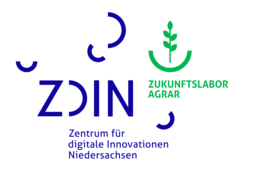Digitisation of agriculture (DdL), like digitisation in every field of application, requires technical permeability of the value creation networks concerned for the data generated; the actors in every field of application also have an interest in maintaining their data sovereignty. In agriculture, the existing approaches to DdL already articulate the conflict between data transparency in the value creation network and the demand for data sovereignty of the actors. Consequently, in practice DdL will only work in the form of Protected Transparency, i.e. in a form that enforces data transparency and protection of data sovereignty both technically and legally. The realisation of protected transparency as a practical prerequisite for DdL is one of the central questions of the ZLA. The practical implementation of the DdL is also crucially dependent on its impact on the sustainability of agriculture in a comprehensive sense (economic, ecological, social): only to the extent that such sustainability effects occur does the DdL make practical sense. Consequently, understanding these sustainability effects of the DdL and their prerequisites, documenting them practically if necessary and quantifying them as far as possible is the other central question of the ZLA. The scientific-technical work is grouped around three sub-projects which address three "central aspects" of the call for future laboratories (1. data management and interpretation, 2. automation and autonomy, 3. effects of digitisation) and interpret them in the sense of the two questions mentioned. In addition, the ZLA carries out public relations work, including training and teaching, consulting for industry, associations, media, politics and the public. It works in close coordination with the ZDIN with regard to cross-application technologies, opportunities and risks of digitisation.
Partners
- Universität Osnabrück
- Hochschule Osnabrück
- Technische Universität Braunschweig
- Universität Vechta
- Thünen Institut
- Universität Göttingen
- Julius Kühn Institut

